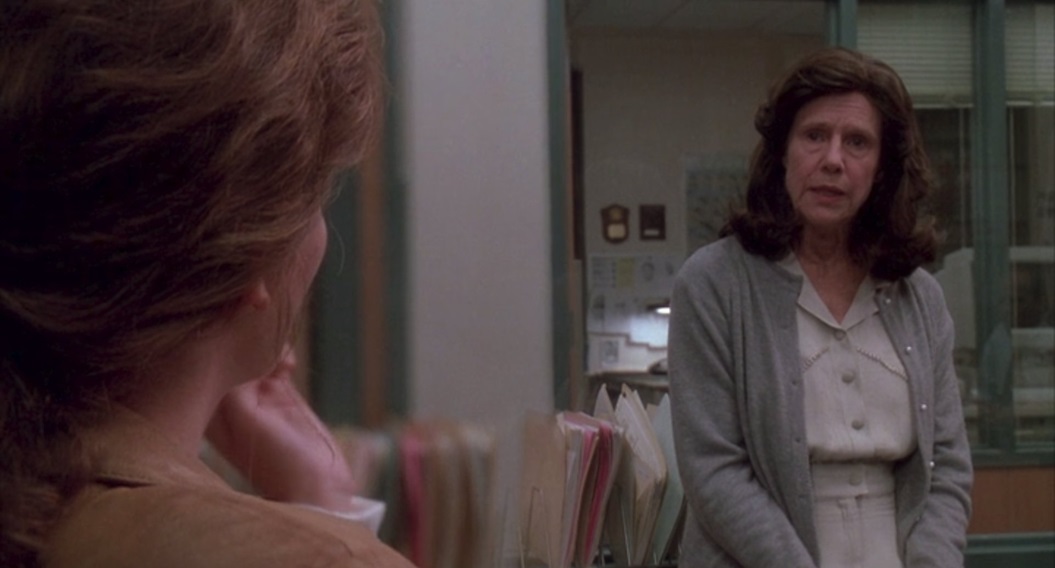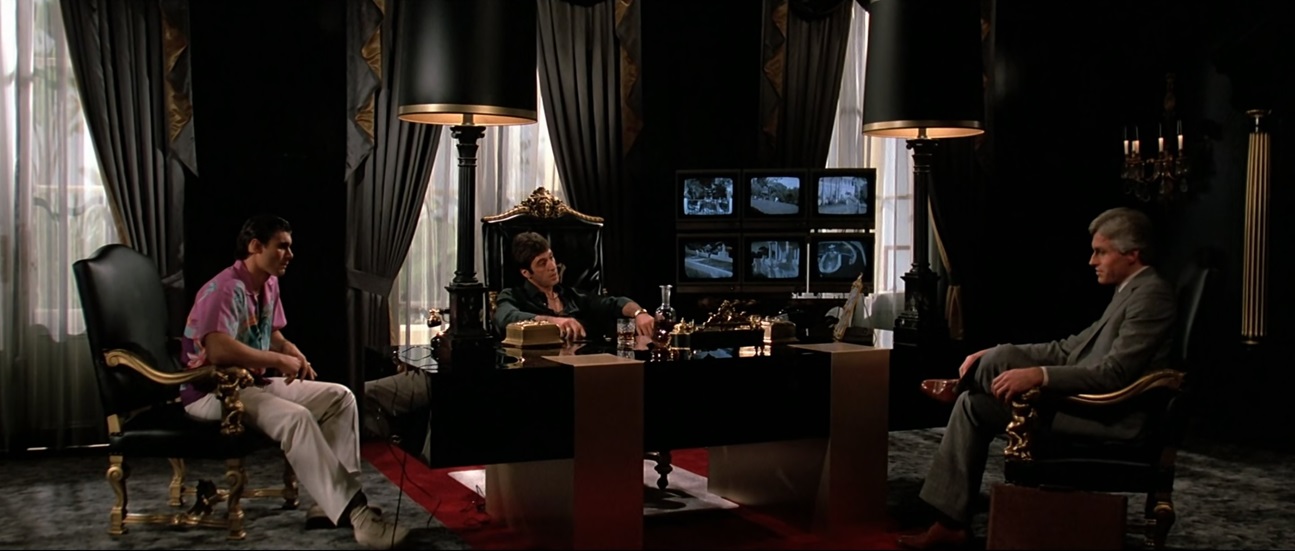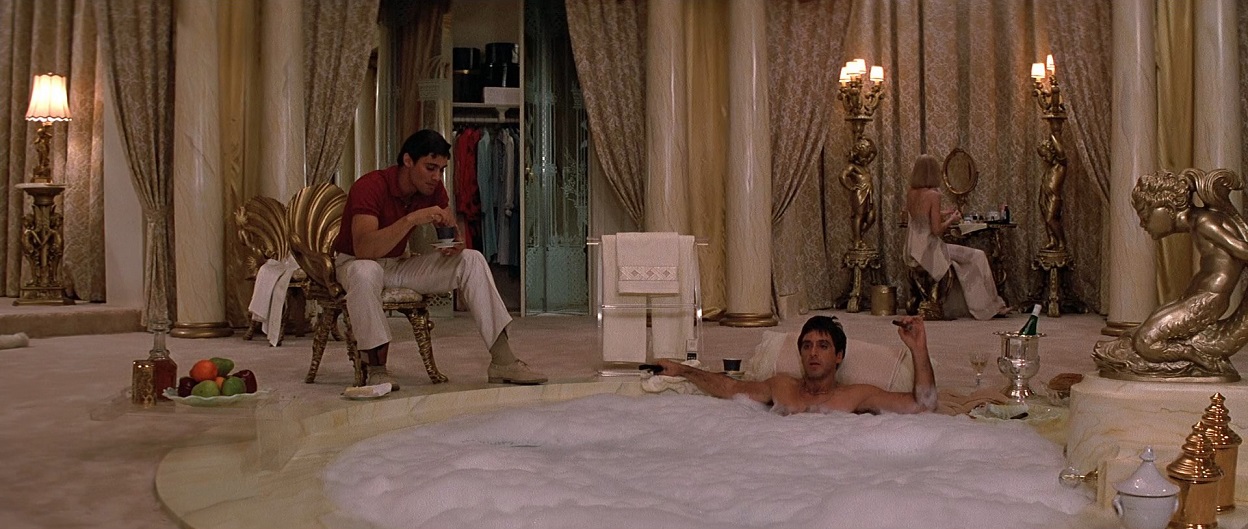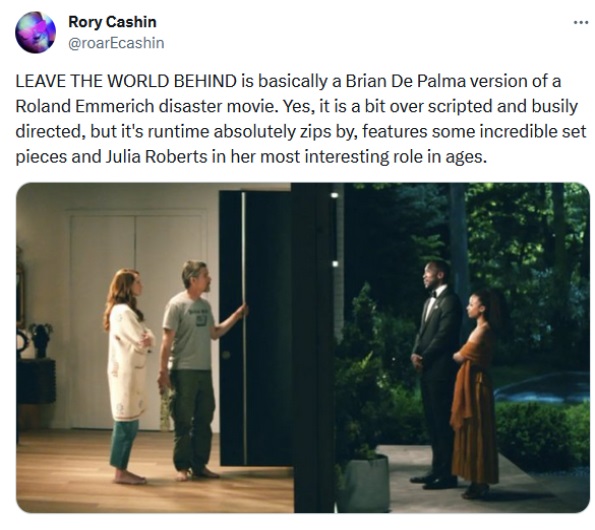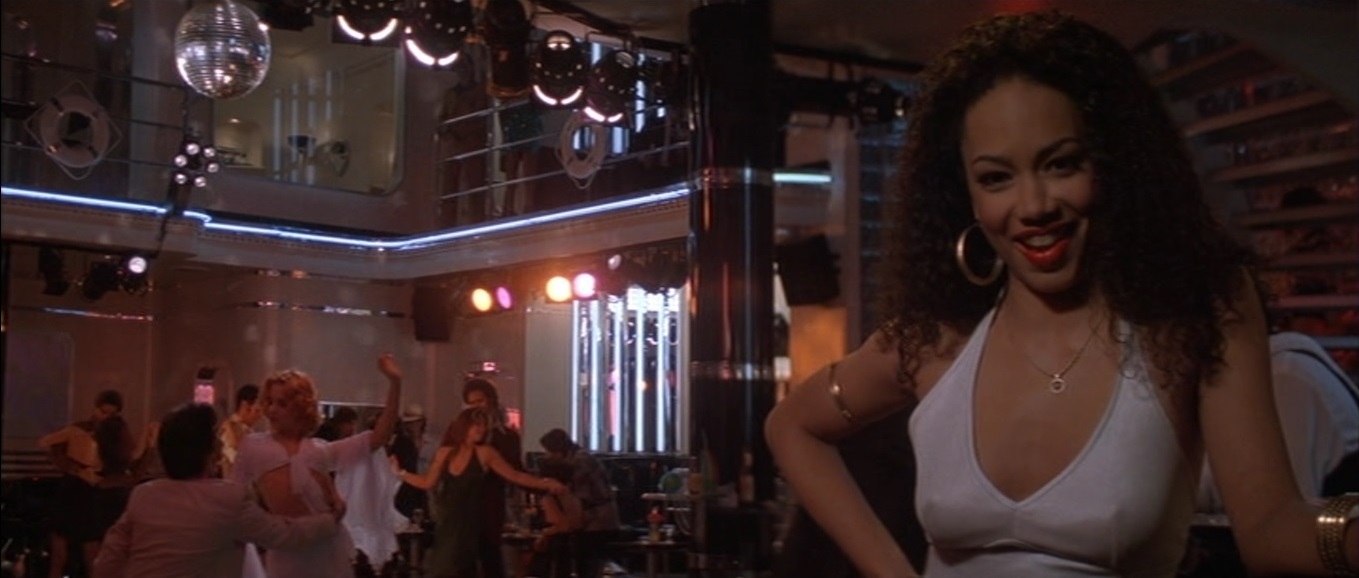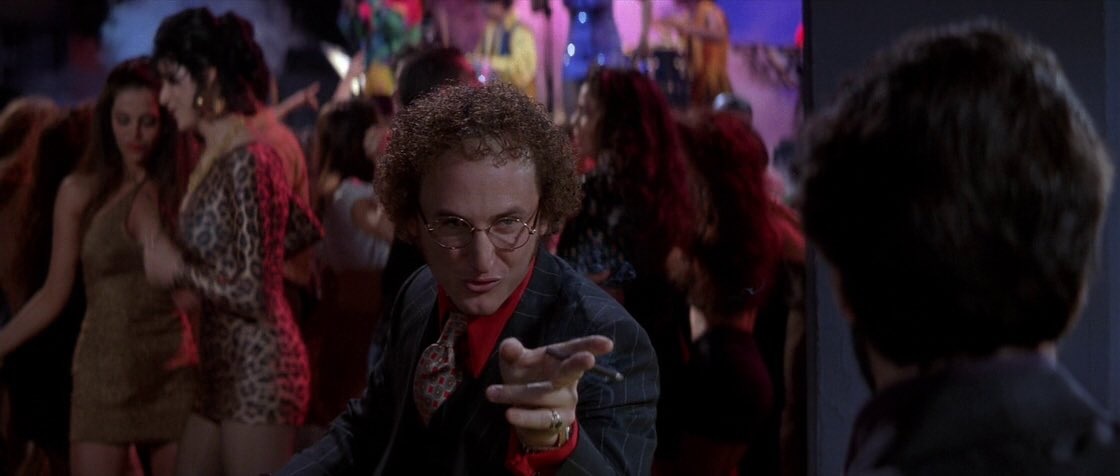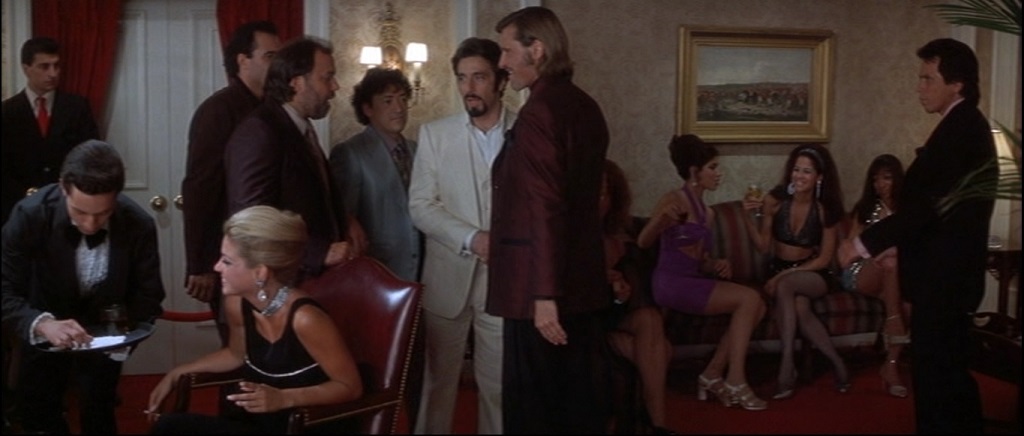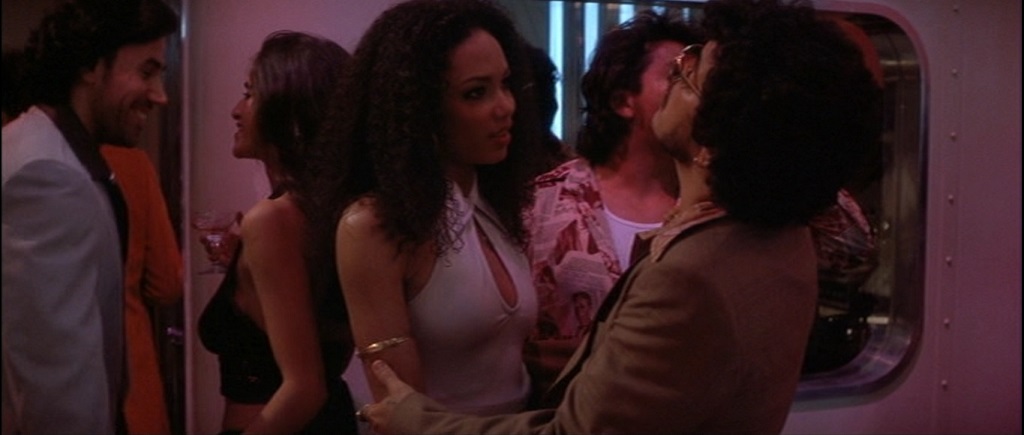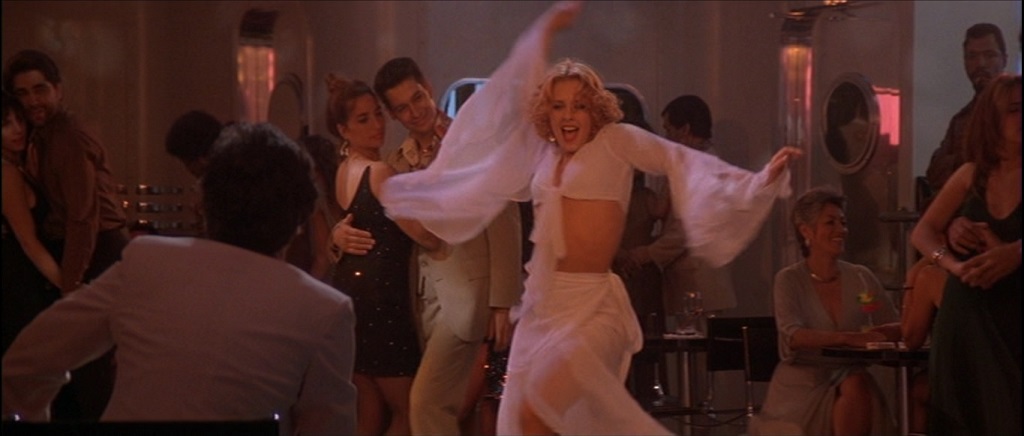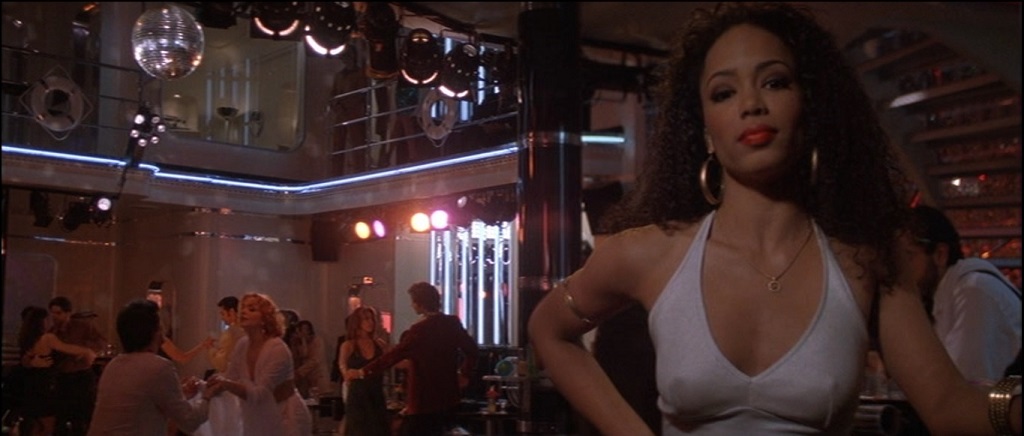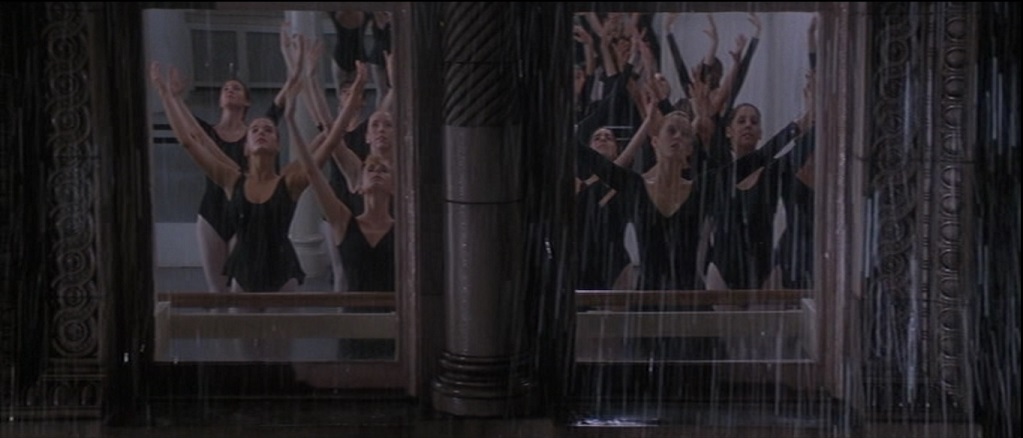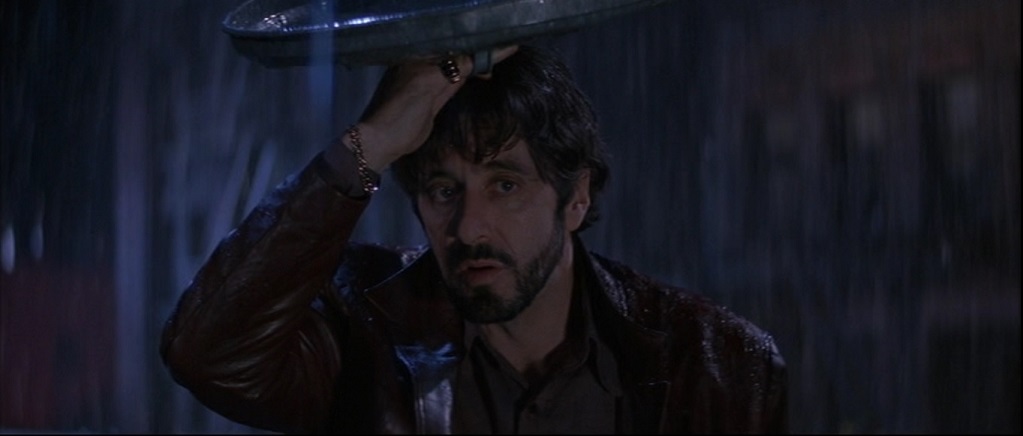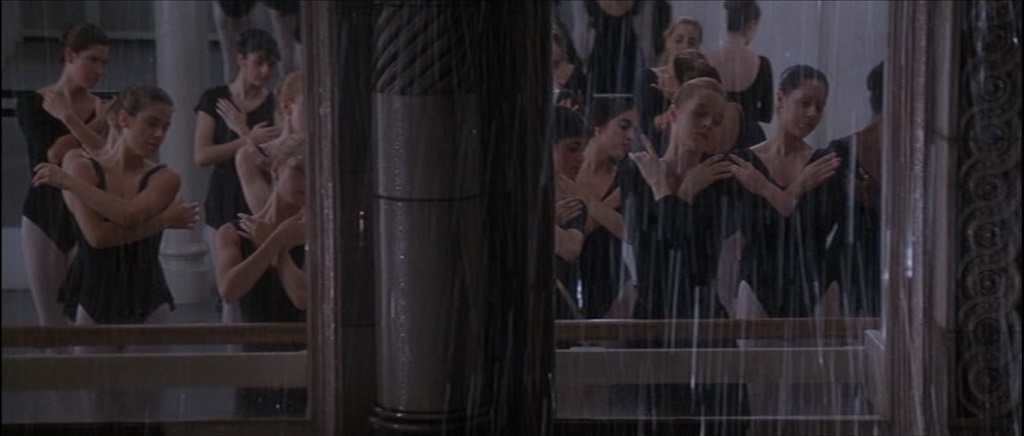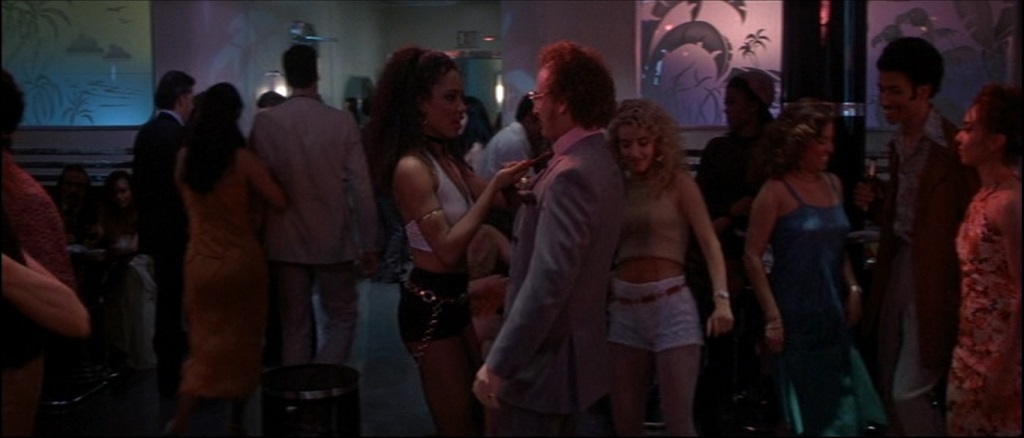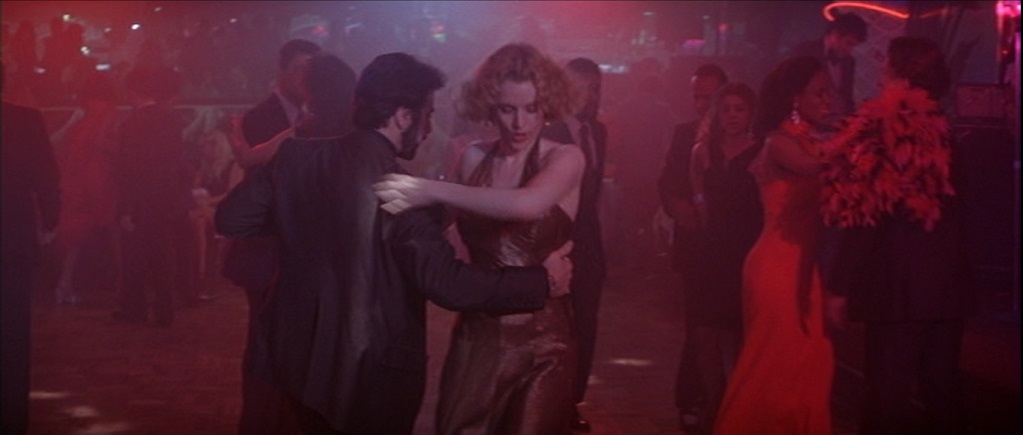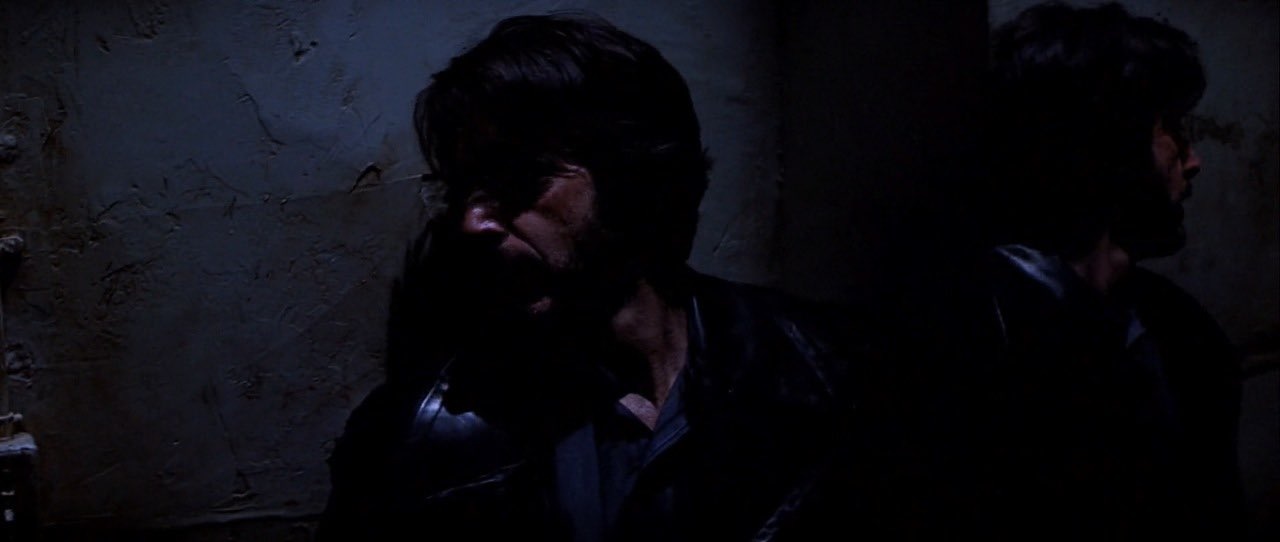AS DR. WALDHEIM IN RAISING CAIN, SHE CENTERED COMPLEX EXPOSITION WITHIN UNBROKEN STEADICAM SHOT

Frances Sternhagen, who memorably played Dr. Waldheim in Raising Cain, has died of natural causes. She was 93.
In Raising Cain, Sternhagen was at the center of what is possibly Brian De Palma's most wonderfully outrageous Steadicam shot. Entertainment Weekly's Tom Scanlon was there while they were filming:
”Cut!” director Brian De Palma calls out. ”Cut, cut, cut,” he mutters, hustling up the steps toward actress Frances Sternhagen. The stocky, salt-and-pepper-bearded De Palma is known for his on-the-set gruffness, but here he shows a softer side, gently coaxing from Sternhagen (Misery) the inflection he imagines an elderly Swiss psychologist would have while explaining how a harmless family man could harbor multiple, murderous personalities. Shooting at City Hall in Mountain View, Calif., De Palma wants Sternhagen to deliver the complex speech while following a pair of detectives through a hallway, down a flight of stairs, onto an escalator, and into an elevator, finally ending up in a basement morgue — all in one continuous shot.The scene is almost as long as the 4-minute, 50-second Steadicam shot that opened De Palma’s last picture, The Bonfire of the Vanities (1990). But if the controversial director of Dressed to Kill, Scarface, and The Untouchables has his way, that will be the only similarity between the two films. With a lean budget ($12 million), relatively low-profile leads (John Lithgow, Lolita Davidovich, Steven Bauer), and a low-key production in the suburbs of San Francisco, Cain is not only a return to the Hitchcockian terrain where De Palma has always felt most at home but it’s also his chance to prove that he can still craft an efficient thriller.
The Cain script, which De Palma also wrote, gives him an opportunity to indulge his taste for showy plot twists and frequent nods — part homage, part send-up-to the master. And it gives Lithgow (Ricochet) the chance to let loose an entire improv troupe’s worth of kinky character studies. ”I must say, I’m great in this movie,” Lithgow chuckles. ”This is going to be mind-blowing.”
For De Palma, who had recently married Terminator producer (and James Cameron’s ex) Gale Anne Hurd, keeping the project manageable was a top priority. ”Gale was pregnant (she has since given birth to a baby girl, now 10 months old), and I wanted to do a movie that I could do very simply and that was close to home,” he says, adding that he deliberately chose locations that were near the couple’s Woodside, Calif., home. Hurd, who’s also Cain‘s producer, says, ”It’s really nice to be able to go to sleep in your own bed.”
Particularly on days like this. The long Steadicam shot requires 27 tedious takes. In the final seconds, with actors gathered around a covered body in the morgue, De Palma bellows stage directions.
”Hand!” he shouts, directing the coroner to lift the corpse’s bloody hand.
”Drop!” The hand drops back on the slab.
”Face!” The sheet is yanked back to reveal …
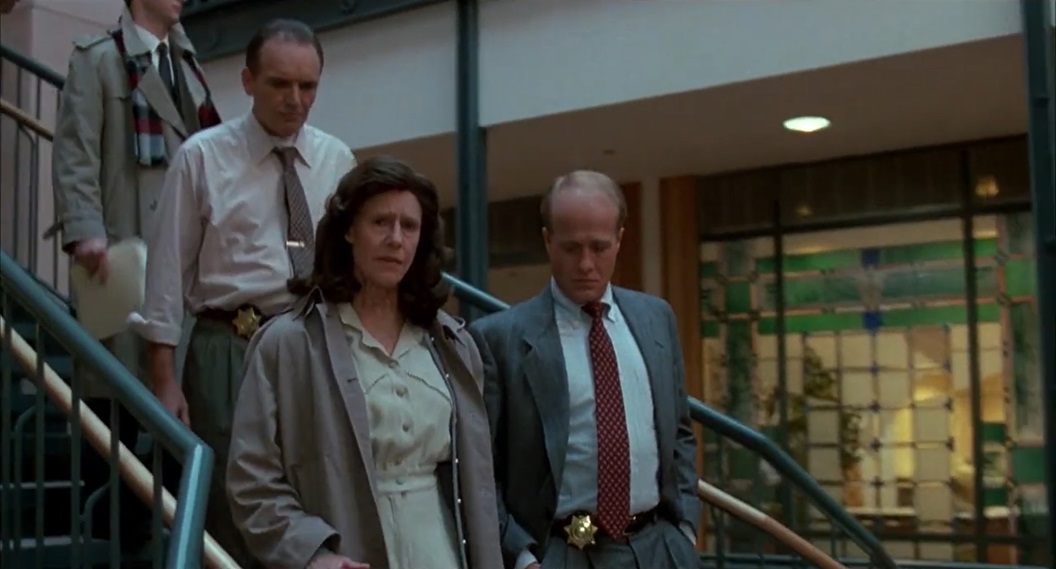







Interviewed by Charlie Rose in 1992, just three months after Raising Cain was released, Rose asked Sternhagen to explain what she measn when she says that she works from the outside in:
Well, it really means that I like to… I feel like John Cleese, the man of silly walks [laughs]. I like to find out how it feels to walk and talk like a character before I really start on the emotional moments. … It begins to all happen together, but in the very beginning, it starts – I love things where I have to do accents, for example. It’s a kind of limit. It’s a kind of pattern that I then can fit myself into. And I know I have a friend, for example, who has no idea that I used her in a movie. And what I loved about it was I just – it began to happen. As I read it, I started seeing how [voice trails off], and pretty soon, I found myself being tough and hard, just the way she was. And what was wonderful was that, I got a little apprehensive that she might recognize herself, she came up to me after seeing the movie and she said, “I like that character you played!” And I thought, she likes herself. She likes herself, that’s nice!
